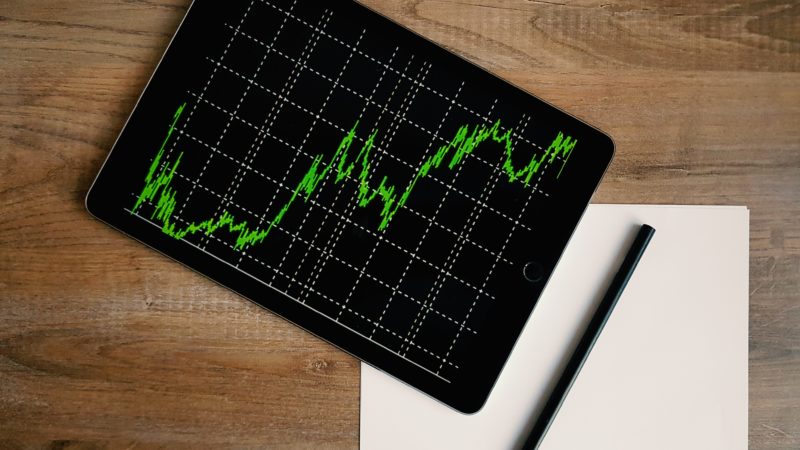Everything You Need to Know About Forex Trading

Forex trading, popularly known as FX trading or foreign exchange, converts one currency into the other. It is one of the best and most actively traded markets across the globe. It includes an average trading volume of around $5 trillion every day. If you are planning to enter the world of forex trading, it is better to get complete information about this world. Here is all you need to know about forex trading.
What is Forex Trading?
Foreign exchange of forex trading can be explained as a network of sellers and buyers involved in transferring currency between each other at a specific price. It is the medium through which companies, central banks, and individuals convert one currency into another for a wide range of reasons.
Though a wide range of foreign exchange is done for practical purposes, many currency conversions are done to profit. The amount of currency converted every day makes the movements of the price of certain currencies highly volatile. The volatility makes forex trading so attractive to traders. It brings profound chances of high profits but also increases the risk.
What Moves the Forex Market?
The forex market is based on currencies from across the globe. It makes the predictions of exchange rates difficult as certain factors cause the price movements. Nevertheless, like other financial markets, forex is mainly driven by the forces of demand and supply. It is essential to understand the forces that cause fluctuations in this world.
Central Banks
Central banks control the supply of currencies. They can announce measures that can remarkably affect the currency’s price. For instance, quantitative easing includes ejecting money into the economy and can lead the price of a currency to drop.
News Report
Commercial banks and other potential investors want to invest their capital into economies with a strong outlook. Therefore, if positive news hits about a certain region hit the markets, it would encourage investment and raise demand for the region’s currency.
Credit Ratings
Investors make efforts to maximize the return on investment they can attain from a market while reducing the risk. Therefore, they consider the credit rating while deciding where to invest. Credit ratings of a country refer to the independent assessment of its chances of paying the debt. A country with high credit ratings is considered safe for investment compared to those with low credit ratings.
Economic Data
Economic data is considered an essential part of the price movement of currencies due to two major reasons. First, it renders an indication of how the economy is currently performing, and second, it provides insight into the upcoming steps of central banks.
Market Sentiments
Market sentiments are often in reaction to the news reports. They play a remarkable role in driving the prices of currencies. Suppose traders believe that a specific currency is moving in a particular direction. They opt for trading accordingly and might convince others to follow suit, which might increase or decrease the demand.
How Does Forex Trading Work?
There are different ways to trade the forex; however, they all work similarly. They include simultaneously purchasing one currency while selling the other one. Conventionally, many forex transactions take place via forex brokers; however, with the increase in online trading, you can take advantage of the forex price movement using derivatives such as CFD trading.
CFDs allow you to open a certain position for only a fraction of the total trade value. In this, you do not take ownership of the asset; nevertheless, you take a position on whether you think that the forex market would fall or rise in value. Leverage products can increase your profits, but they can also magnify the losses if the market moves against you.
Forex Trading Risks
Forex trading is full of risks and complexities. The interbank market contains various degrees of regulation. In addition to this, instruments of forex are also not standardized. In certain parts of the world, forex trading is almost entirely unregulated.
The interbank market consists of banks worldwide, trading with each other. The banks have to accept and determine credit risk and sovereign risk. In addition to this, they have properly established internal processes to manage their safety. This type of regulation is industry-imposed to ensure the protection of participating banks.
The market is made by participating banks, renders bids, and offers for a specific currency, and the mechanism of market pricing is based on supply and demand. There are various large trade flows in the system, making it difficult for rogue traders to affect the currency price. It helps create transparency in the system for the investors by rendering access to the interbank dealing.
Most small traders trade with the help of semi-unregulated and small forex dealers and brokers, who can trade against their customers and can even re-quote prices. Based on the dealer’s location, there might be some industry and government regulations; however, these regulations are inconsistent across the globe.
Forex Trading Pros and Cons
The world of forex trading looks interesting due to involved profits, but it also contains a wide range of risks. Here are some pros and cons of forex trading.
Pro: In terms of trading volume, the forex markets are the largest, and therefore they offer the most liquidity. It makes it easy to exit and enter a position in any prime currencies within a second for a small spread in varied market conditions.
Con: Dealers, brokers, and bankers involved in the forex market allow a remarkable amount of leverage, which can help the traders control large positions with small amounts of money of their own. A trader needs to comprehend the use of leverage. The trader should also understand the risk introduced by the leverage. Too much leverage has led many traders to become insolvent unexpectedly.
Pro: The trading in the forex market continues for 24 hours a day and five days a week. It starts in Australia and ends in New York. The main centers of the forex market are Hong Kong, Sydney, Paris, London, New York, Singapore, Tokyo, and Frankfurt.
Con: Trading the currencies successfully requires an adequate understanding of economic indicators and fundamentals. A currency trader needs to have a complete understanding of the economies of different countries and their interconnectedness to comprehend the fundamentals that drive the values of currencies.
Traders with limited funds can opt for swing trading or day trading in the forex market. Carry trade or long-term fundamentals-based trading can benefit traders with larger funds and longer-term horizons. Understanding macroeconomic fundamentals responsible for driving currency values and technical analysis knowledge can help attain a remarkable profit.






